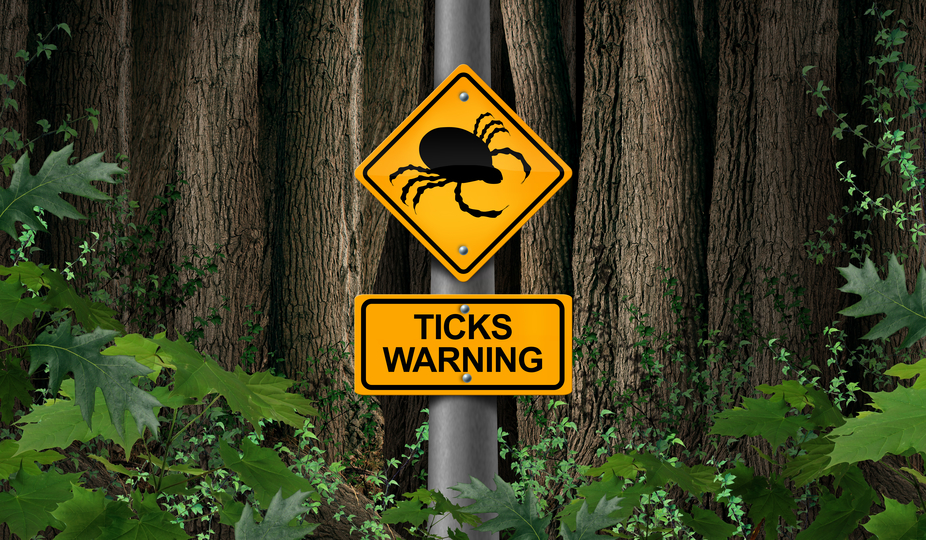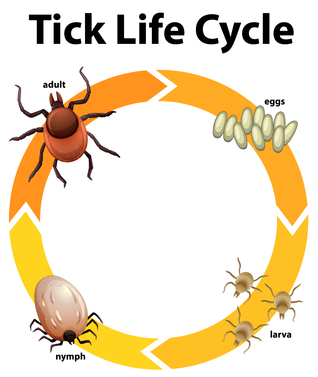Ticks Are Also Looking Forward To Fun-Filled Summer Outings!
If you live in McLean, VA, you could consider taking your children out to discover the town a bit more this summer. There are many government officials who live here since the town is close to Washington, DC. And if your child is interested in governance, they’d be thrilled to get to meet current leaders. But even if they aren’t, take advantage of the Clemjontri Park for lots of fun within its spacious playground spanning 2 acres. But as you plan to enjoy a good time out, remember, you’re not alone out there.
Tiny But Dangerous

Interestingly, summer also happens to be the time when the animals in the wild come out to bask in the sun after a season of hibernation. So, as you’re planning to go out for play, explore nature trails, and take long hikes in the evenings, remember to wear appropriately. Ticks are also out there…
When asked to imagine deadly animals, it is easy to conjure images of large predators and sharp teeth. But the deadliest animals are actually much smaller.
Vector pests, such as mosquitoes and ticks, are way up on the list due their ability to vector disease. Mosquitoes hold the world title, namely due to malaria. However, malaria is a much smaller problem in the United States.
With the ability to vector diseases such as Lyme disease and Rocky Mountain spotted fever, the tick can be considered the most dangerous arthropod in the United States. Read more at MGK
And you need to know something more about them. Because they aren’t insects as some people imagine they are.
Facts about Ticks

Supposing you met a friend and they too, told you to be careful about ticks this summer. Then they went on about how dangerous these bugs are because a friend of a friend was down with a weirdly named tick-borne illness. And you’re like, “Hold up, I don’t know the basic facts about ticks in the first place!” Well, here are the must-know details about ticks.
Most species of ticks feed on the blood of mammals, birds, and reptiles. Ticks are not insects, such as fleas, but are actually arachnids, more related to spiders, scorpions, and mites. They have a four-stage life cycle: eggs, larvae, nymphs, and adults. Depending on its species, a tick may take less than a year or up to several years to go through its four-stage life cycle. While ticks need a blood meal at each stage after hatching, some species can survive years without feeding. Ticks are commonly found near wooded or vegetated areas. They need an area with high humidity (to maintain moisture balance) and a mix of animal species to act as hosts. Hard ticks seek hosts by an interesting behavior called “questing.” Questing ticks crawl up the stems of grass or shrubs, or perch on the edges of leaves on the ground, with their front legs extended. Carbon dioxide, heat, and/or movement serve as stimuli for questing behavior. Subsequently, these ticks climb onto a potential host which brushes against their extended front legs or drop down onto a potential host from a high perching area when shadows/movement are observed. Read more at Bugs
Apart from the common Lyme Disease, do you know other illnesses associated with ticks?
Be on the lookout

As you do your homework on tick-related illnesses, don’t get yourself too freaked out. You can avoid them by taking on a proactively preventive tick control plan. Since there’s not much you can do about the woods and any other natural environment for ticks, you can keep an eye out for tick bites.
Always check your kids (and yourself) for ticks after spending time in the woods. Check their skin and hair — on the scalp, behind the ears, around the neck, in the eyebrows and eyelashes. Check skin fold areas like the armpits, belly button, behind the knees, and groin area. Ticks removed within 36 hours are less likely to spread diseases.
If you find a tick:
Call your doctor, who may want you to save the tick in a sealed container or zippered plastic bag so the type can be identified.
Use tweezers to grab the tick as close as possible to the skin. Then, pull it off in one steady motion. Do not twist or yank it.
Wash the bite area with soap and water or swab it with alcohol. Read more at Kids Health
What you should avoid if you find a tick on your skin or your child, don’t apply anything like lotion or petroleum jelly on it. It may be more difficult to get it out. You can be sure you want that bug out as soon as possible before 36 hours elapse. That is the window period for infection.
The good news is that your yard can be tick-free! With the help of licensed tick control applicators, your family can enjoy the outdoors without fear of a tick bite. Call the Backyard Bug Patrol team for professional tick control services. You’ll have a fun-filled and peaceful summer this year!
